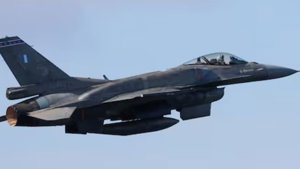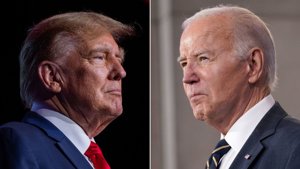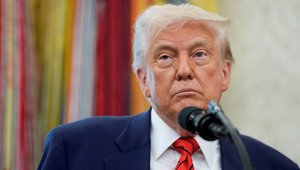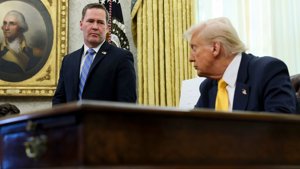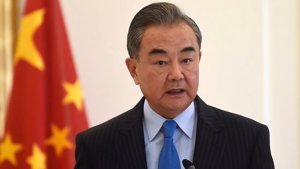
Fetterman, Pentagon Praise Trump’s Decisive Iran Strikes
Fetterman and U.S. military leaders praise Trump’s Iran strikes, while Tehran’s top leadership remains in hiding.
Strikes on Iranian Nuclear Facilities Receive Bipartisan Praise
Senator John Fetterman of Pennsylvania, a Democrat, endorsed President Donald Trump’s decision to launch airstrikes on Iran’s most fortified underground nuclear sites, highlighting a rare moment of bipartisan support. Fetterman wrote on social media that the move was “correct,” stating, “Iran is the world’s leading sponsor of terrorism and cannot have nuclear capabilities. I’m grateful for and salute the finest military in the world.” Trump, announcing the attack’s success, said, “Congratulations to our great American Warriors. There is not another military in the World that could have done this.”
The operation targeted Iran’s key nuclear sites at Fordow, Natanz, and Isfahan. According to Trump, a full payload of bombs was dropped on Fordow, and all U.S. planes returned safely. The president called for de-escalation, declaring, “NOW IS THE TIME FOR PEACE!”
Pentagon Outlines ‘Operation Midnight Hammer’
At a Pentagon press conference, Secretary of Defense Pete Hegseth and Chairman of the Joint Chiefs Gen. Dan “Razin” Caine provided further details, describing the overnight mission as “an incredible and overwhelming success.” Hegseth explained, “The order from our commander in chief was focused, powerful, and clear. We devastated the Iranian nuclear program.” Caine revealed that the strikes used dozens of Tomahawk cruise missiles launched from submarines, as well as the longest B-2 Spirit bomber mission since 2001. Subtle deception tactics, including decoy bomber flights, were used to preserve tactical surprise.
The Pentagon emphasized that the strikes did not target Iranian troops or civilians, focusing exclusively on degrading Iran’s nuclear capabilities. Hegseth reiterated that the United States does not seek war but will “act swiftly and decisively when our people, our partners or our interests are threatened.” He urged Iran to choose peace, stating, “We ultimately demonstrated that Iran cannot have a nuclear capability.”
Diplomacy Stalls as Iranian Leaders Remain Silent
Efforts at diplomacy broke down days before the strikes, as Iranian Supreme Leader Ayatollah Ali Khamenei reportedly refused to approve high-level talks and has since been hiding in a bunker, suspending all electronic communications. President Trump attempted to coordinate negotiations through Turkish President Recep Tayyip Erdoğan, offering to send top U.S. officials or even travel to Turkey himself for direct talks. Despite signals from Iranian intermediaries expressing interest, Khamenei’s absence scuttled the meeting.
Trump addressed the nation following the attacks, stressing that Iran’s nuclear facilities had been “completely and totally obliterated.” He warned Tehran’s leadership that further provocation would result in even greater force but left the door open for peace if Iran changed course. Iranian Foreign Minister Abbas Araghchi, however, dismissed the likelihood of diplomacy after the strikes, criticizing the U.S. for undermining ongoing negotiations.
Lisa Daftari, an expert on Iran, commented that Trump’s approach—including targeted military action and back-channel diplomacy—sent a clear message about U.S. resolve. She noted, “If the red line was Iran getting nuclear weapons, then force—targeted and decisive—was the only responsible conclusion.”
As international observers await Iran’s response, the strikes mark a dramatic escalation and demonstrate the United States’ willingness to use force to prevent nuclear proliferation. With top Iranian leaders in hiding and diplomatic channels frozen, the future of U.S.-Iran relations remains highly uncertain.

